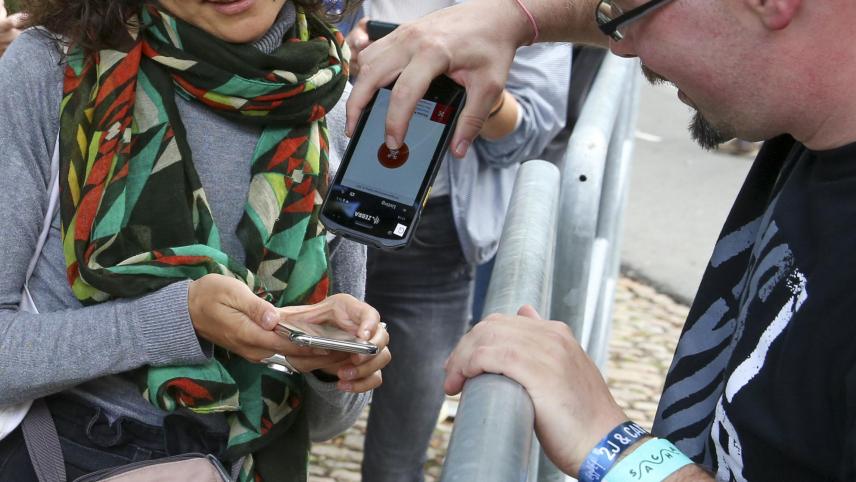The vaccination rate among young people in the Brussels-Capital Region rose slightly, which could possibly have to do with the upcoming implementation of the Covid Safe Ticket (CST), says Inge Neven of the Brussels health inspectorate.
While the vaccination campaign is not showing signs of an acceleration in general, the rate went up by two percentage points among the 12-24 years-old in the Capital-Region, compared to last week.
"We landed at just under 10,000 first doses last week. The figures remain stable, but it is still not where we want to be," Neven said during a weekly press briefing on Tuesday. "We do see the number of vaccinations increasing among young people."
While it is difficult to be sure, the slight increase is possibly related to the introduction of the CST in Brussels, which is required to gain access to nightclubs and discos since Friday 1 October.
From 15 October, however, people will also be required to show a valid CST to prove that they are fully vaccinated, have recently tested negative or recovered from an infection in the past six months to enter bars, restaurants and residential care centres.
Related News
- Flemish Brabant split from Brussels by different CST rules
- Brussels to implement Covid Safe Ticket 'by 15 October at the latest'
- Brussels Government approves draft order on Covid Safe Ticket
"So, in the next few weeks our testing centres will be ready to receive young people," said Neven, referring to the large group of young people who are not (fully) vaccinated.
First doses, however, rose by two percentage points among 12-17-year-olds (to 35%) and among 18-24-year-olds (to 49%) over the past week.
"While this is only a slight increase, it has been going on for several weeks," explained Neven, pointing to the success of local initiatives like the Vacci-buses and awareness-raising actions.
"The figures remain stable, but we have not had a 'Macron effect' yet," she said, alluding to the situation in France this summer, where the President's that the ‘pass sanitaire’ (health pass) would be made mandatory to enter bars, restaurants and museums resulted in a surge in vaccination appointments, as almost a million first shots were booked the day after the speech.
Neven also confirmed that many Vacci-buses are now vaccinating people with Pfizer's vaccine, which requires two doses, instead of the single-shot Johnson & Johnson vaccine. "The population is more inclined to be vaccinated with Pfizer, so we responded to that."
The Brussels authorities hope to further boost the figures this week through vaccination moments in the schools: actions are planned in six Dutch-speaking schools, five French-speaking schools and three colleges.
Hope is also pinned on the third shot among the over-65s, also known as the booster vaccine. "We already welcomed people for such a vaccine on Monday, but we will only send out the invitations next week."

